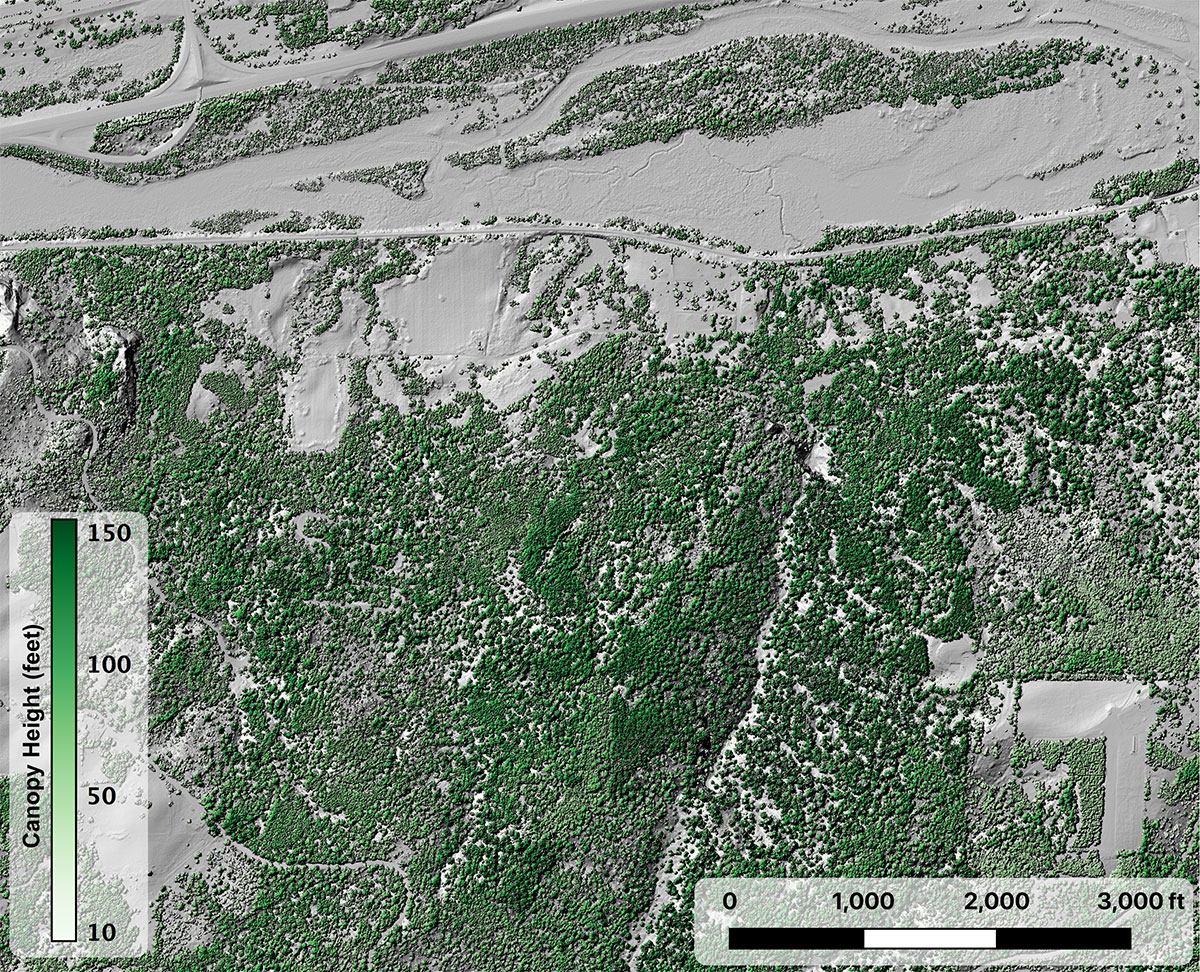News
OpenTopography Collaboration Awarded New 4-Year Grant
Published August 23, 2020
The National Science Foundation (NSF) has renewed funding for OpenTopography, a science gateway that provides online access to Earth science oriented high-resolution topography data and processing tools to a broad user community advancing research and education in areas ranging from earthquake geology to ecology and hydrology.
The award, Collaborative Research: OpenTopography - A cyberinfrastructure facility for advancing geoscience research and education, provides $2.55 million over four years for the fourth generation of the project. OpenTopography was founded in 2009, and is managed by the San Diego Supercomputer Center (SDSC) at UC San Diego; UNAVCO, a non-profit university-governed consortium facilitating geoscience research and education in Boulder, Colorado; and Arizona State University’s School of Earth and Space Exploration (SESE). The award is jointly funded by the Geoinformatics and the Geomorphology and Land Use Dynamics programs in the Division of Earth Sciences at the NSF.
OpenTopography supports an interdisciplinary user base in academia and beyond by making high-resolution digital topographic data and shallow water bathymetric data available. These data have revolutionized Earth and environmental sciences and engineering, contributing to the study of Earth surface processes (e.g., earthquakes and volcanoes, landslides, riverine sediment transport), vegetation dynamics, and human modification of the Earth's surface.
OpenTopography presently hosts 422 high-resolution topographic datasets collected with light detection and ranging (lidar) and photogrammetry. These datasets come from academically funded research as well as through OpenTopography partnerships with federal, state, and local entities.
In early 2020, OpenTopography also began offering access to data from the U.S. Geological Survey’s 3D Elevation Program, which presently includes high resolution coverage of approximately 65% of the United States. Global datasets such as those from the Shuttle Radar Topography Mission (SRTM) are also available.

[Enlarge] Lidar image from the Columbia River Gorge in Oregon. Height of the vegetation canopy, calculated from the lidar point cloud data, is shown in shades of green. Data from the Oregon Department of Geology and Mineral Industries Lidar Program
Over 125,000 unique users have processed data via the OpenTopography portal, with an additional 87,000 users accessing data via available application programming interfaces (APIs). These computations and analyses support substantial academic, educational, and applied use and reuse of the valuable data holdings. OpenTopography data and compute services have been used and cited in more than 525 peer-reviewed publications, reports, and masters and doctoral theses.
“Since we started the project a decade ago, OpenTopography has matured into a widely used platform that makes topographic data easy to discover, access, and utilize,” said Christopher Crosby, OpenTopography principal investigator and Geodetic Imaging project manager at UNAVCO. “Democratizing access to this data has enabled scholarly research and wider applied use of the hosted data. OpenTopography’s easy-to-use system makes it an appealing platform for hosting and making data available to stakeholders, enabling a larger return on investment for what are typically quite expensive datasets to collect.”
The new award will allow OpenTopography to accelerate data-intensive topography-based research while addressing scalability, adding new features and functionality, and expanding data offerings. This project will also enhance access to data and processing tools that improve efficiency and economic competitiveness.
“OpenTopography continues to experience very strong growth in the number of users and jobs being run,” said Viswanath Nandigam, the project’s principal investigator and associate director for the Advanced Cyberinfrastructure Development group at SDSC. “A major effort during this phase is a migration to the commercial cloud with its auto scaling, elastic load balancing, and resilient architectures to better handle the needs of the growing community. We hope to empower users to perform custom data analysis in place on the cloud, thereby eliminating the need for large volume transfers.”
In addition to facilitating the use of OpenTopography resources in K-12, undergraduate, and graduate STEM education, the project will also continue its education and training efforts by conducting workshops and training courses along with building supporting tools such as computational notebooks and reproducible workflows.
“We look forward to supporting the exploration of topographic data by scientists, engineers, educators, students, and the general public,” said Ramon Arrowsmith, principal investigator for the project and a geology professor in ASU’s School of Earth and Space Exploration. “OpenTopography transforms research and education in geoscience and related disciplines with its ease of access and useful data products.”
More information about OpenTopography can be found at https://www.opentopography.org/
About SDSC
The San Diego Supercomputer Center (SDSC) is a leader and pioneer in high-performance and data-intensive computing, providing cyberinfrastructure resources, services, and expertise to the national research community, academia, and industry. Located on the UC San Diego campus, SDSC supports hundreds of multidisciplinary programs spanning a wide variety of domains, from astrophysics and earth sciences to disease research and drug discovery. In late 2020 SDSC will launch its newest National Science Foundation-funded supercomputer, Expanse. At over twice the performance of Comet, Expanse supports SDSC’s theme of ‘Computing without Boundaries’ with a data-centric architecture, public cloud integration, and state-of-the art GPUs for incorporating experimental facilities and edge computing.

